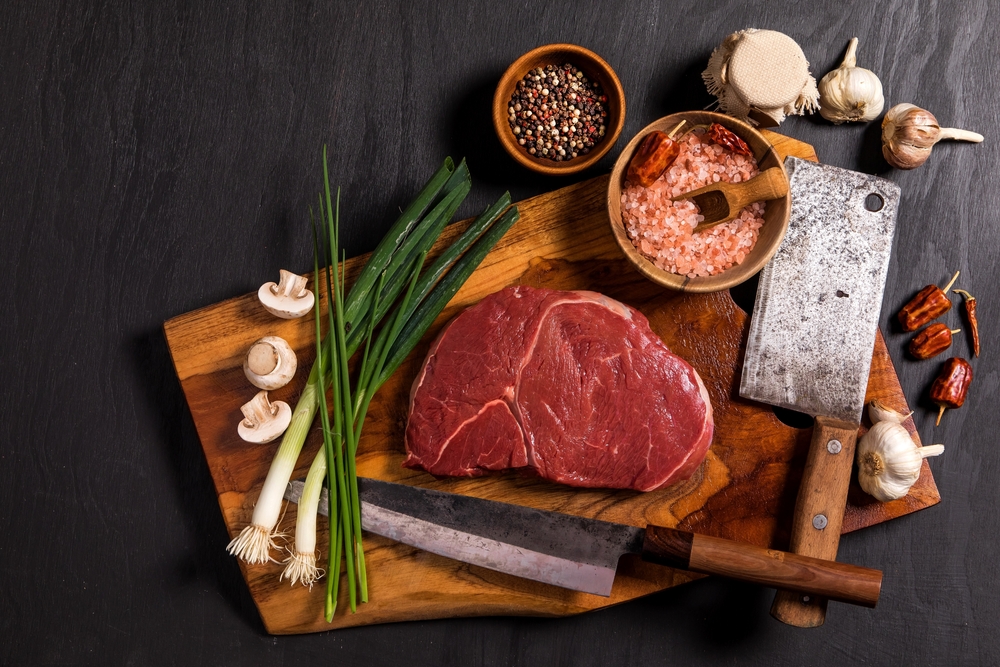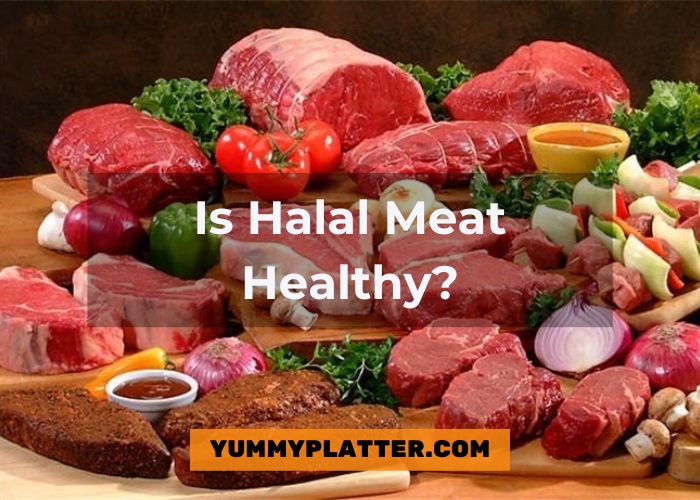Ever heard of halal meat and wondered what the fuss is about? Halal meat is not just any meat. It’s special. It follows Islamic law, making it a big deal for many people around the world. But here’s the million-dollar question: Is halal meat healthier than non-halal meat? Some say yes, others aren’t so sure. We’re diving into this topic to see what’s up.
First off, halal meat comes from animals that are well-cared for and slaughtered in a specific way. It’s about respect and kindness. But does this make the meat healthier? Well, that’s what we’re here to find out. We’ll look into the nutritional side of things, check out what experts say, and even consider how the animals are treated before they become our dinner.
So, is halal meat healthy? Let’s explore together. Whether you’re curious, skeptical, or just hungry for knowledge, you’re in the right place. Stick around as we unpack the health benefits (or myths) surrounding halal meat. It’s going to be an interesting ride!
Understanding Halal Meat
Alright, let’s get into it. What exactly is halal meat? In simple terms, it’s meat that follows Islamic law. This isn’t just about the type of animal being eaten. It’s about how the animal is treated from farm to table.
Halal 101
First up, for meat to be halal, it has to come from certain animals. We’re talking cows, sheep, goats, and chickens, among others. But it’s not just about the animal type. How these animals live and how they’re fed matters a lot.
The Slaughtering Process
Here’s where things get specific. Halal meat must be slaughtered specially. A quick, humane cut to the throat, a prayer, and bam—the meat is halal. This method is all about respect and causing the least pain possible.
Some folks think halal meat is very different from other meat. Well, it’s not from another planet! The main difference lies in the slaughtering process and the care given to the animals. Halal isn’t just about following rules; it’s about kindness and ethics.
Nutritional Analysis of Halal Meat
Now, let’s chop into the meat of the matter; Nutrition. You’re probably wondering, “Is halal meat healthier on the nutrition front?” Well, it’s time to sift through the facts.
Halal vs. Non-Halal: The Nutritional Showdown
When you compare halal meat to non-halal meat, the basics—like protein, fats, and vitamins—are pretty much the same. After all, a chicken is a chicken, right? But, the devil is in the details. How the animal lived and how it was slaughtered can influence meat quality.
Stress Levels Matter
Did you know stressed animals can produce lower quality meat? It’s true. The halal slaughtering process aims to minimize stress, which might just make that meat a tad healthier. Less stress can mean better meat. It’s all about keeping things calm and respectful.
Experts Weigh In
Nutrition experts have their say, too. While many agree the nutritional content is similar, some suggest halal meat could be a bit safer. Why? Because the slaughtering process includes draining blood, which might reduce the risk of certain bacteria. Interesting, huh?

Ethical Considerations
Alright, let’s get to the heart of the matter—ethics. When we talk about meat, how it gets to our plate matters a lot. And when it comes to halal meat, there’s a whole ethical playbook to follow.
Animal Welfare in the Spotlight
In the world of halal, treating animals with respect is key. This means good living conditions, proper care, and a humane slaughtering process. It’s not just about following rules; it’s about kindness. This approach aims to ensure the animals live stress-free lives right up until the end.
Respect and Ritual
The halal slaughtering process isn’t just a method; it’s a ritual. It involves a prayer that shows respect for the life being taken. This ritual is meant to acknowledge the significance of the act, ensuring the animal is honored and not just processed.
What Consumers Think
People are becoming more conscious about where their food comes from. And for many, halal meat ticks the boxes for ethical eating. It’s not just about diet; it’s about making choices that feel right. Halal meat offers a way to eat meat that aligns with values of care and respect.
Environmental and Sustainability Perspectives
Ever wondered, “Is halal meat healthier for our planet?” It’s a big question, so let’s break it down.
The Environmental Footprint
Raising animals for halal meat, like any meat, impacts the environment. It’s about land, water, and resources. But, there’s a twist. Many halal producers focus on ethical and sustainable farming practices. This means better care for animals and often, a lighter touch on the earth.
Sustainability Practices
In the halal world, sustainability is getting more attention. This includes everything from how animals are fed to how farms operate. The goal? To make halal meat not just good for people but good for the planet too. It’s about looking ahead and making sure we’re eating responsibly.
What This Means for You
Choosing halal meat can be a step toward more sustainable eating. By supporting producers who care about the environment, you’re making a choice that helps the planet. It’s not just about what’s on your plate; it’s about the world we all share.
Also Read: Is Octopus Halal?
Health Benefits and Concerns

Let’s chat about what’s really on everyone’s mind: health benefits and concerns of halal meat. It’s time to get down to the nitty-gritty.
The Health Perks
Halal meat comes with some interesting health claims. One big plus is the way blood is drained from the meat during the halal process. This can mean less risk of bacteria and other nasties. Cleaner meat? Sounds like a good deal. Plus, the emphasis on animal welfare might just make halal meat a bit more nutritious, thanks to lower stress levels in the animals.
Watching Out for Pitfalls
But, hold up. It’s not all sunshine and rainbows. Like any meat, halal meat needs to be part of a balanced diet. Eating too much of any kind of meat, without mixing in fruits, veggies, and grains, isn’t the way to go. Balance is key.
Making Smart Choices
So, is halal meat healthier? It can be, especially if you’re careful about where it comes from and how it’s produced. Choosing high-quality halal meat, and eating it as part of a diverse diet, can be a smart move for your health.
In the end, halal meat offers some potential health benefits, but it’s important to stay informed and make choices that fit your overall dietary needs.
To find halal meat in the USA and the UK, start by checking local Muslim-owned grocery stores and butchers, as they often stock a wide variety of halal-certified products. Many supermarkets in both countries now also carry halal sections due to growing demand, so look for halal labels on meat products in these stores.
Additionally, online platforms and apps dedicated to halal food can help you locate halal meat suppliers and restaurants in your area. These digital resources are particularly useful in cities with smaller Muslim communities where halal options might not be as readily visible. Don’t hesitate to ask for halal certification information to ensure the meat meets halal standards.
FAQs
Does halal meat have fewer additives compared to non-halal meat?
Halal certification typically requires that the meat is free from harmful additives and processed in a cleaner, more natural way. This means halal meat often contains fewer artificial preservatives and chemicals, making it a potentially healthier option.
Can eating halal meat reduce the risk of foodborne illnesses?
The strict slaughtering and processing standards for halal meat, including thorough blood drainage, may reduce the risk of foodborne illnesses linked to bacteria found in blood. This makes halal meat potentially safer to consume.
Is it true that halal meat tastes better, and does this affect its health benefits?
Some people believe halal meat tastes better due to the ethical treatment of animals and the thorough blood drainage process, which can impact meat flavor and texture. While taste is subjective, these factors don’t directly affect the meat’s health benefits but can enhance the overall eating experience.
Conclusion
In wrapping up, whether halal meat is healthier sparks a lot of debate. What we’ve discovered is that halal meat isn’t just about following religious rules—it also touches on nutrition, ethics, and environmental sustainability. Choosing halal meat can offer benefits like better animal welfare and potentially safer, cleaner meat.
Yet, it’s crucial to remember balance in our diets. Halal meat can be part of a healthy eating plan when consumed with a variety of other nutritious foods. As consumers, staying informed and making choices that align with our values and health goals is key. So, next time you’re at the store or dining out, considering halal meat could be a step towards conscious eating.

